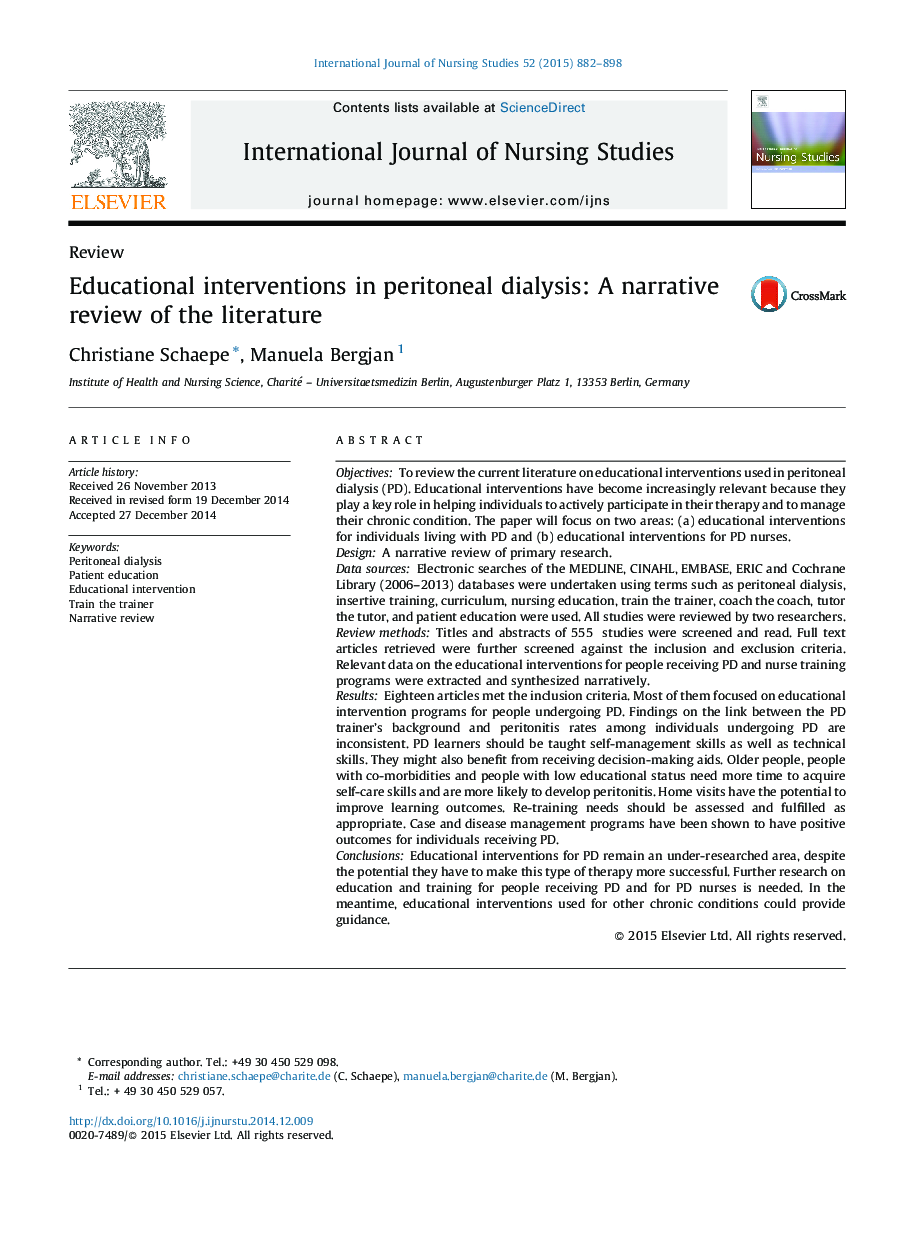| کد مقاله | کد نشریه | سال انتشار | مقاله انگلیسی | نسخه تمام متن |
|---|---|---|---|---|
| 1076266 | 1486525 | 2015 | 17 صفحه PDF | دانلود رایگان |
ObjectivesTo review the current literature on educational interventions used in peritoneal dialysis (PD). Educational interventions have become increasingly relevant because they play a key role in helping individuals to actively participate in their therapy and to manage their chronic condition. The paper will focus on two areas: (a) educational interventions for individuals living with PD and (b) educational interventions for PD nurses.DesignA narrative review of primary research.Data sourcesElectronic searches of the MEDLINE, CINAHL, EMBASE, ERIC and Cochrane Library (2006–2013) databases were undertaken using terms such as peritoneal dialysis, insertive training, curriculum, nursing education, train the trainer, coach the coach, tutor the tutor, and patient education were used. All studies were reviewed by two researchers.Review methodsTitles and abstracts of 555 studies were screened and read. Full text articles retrieved were further screened against the inclusion and exclusion criteria. Relevant data on the educational interventions for people receiving PD and nurse training programs were extracted and synthesized narratively.ResultsEighteen articles met the inclusion criteria. Most of them focused on educational intervention programs for people undergoing PD. Findings on the link between the PD trainer's background and peritonitis rates among individuals undergoing PD are inconsistent. PD learners should be taught self-management skills as well as technical skills. They might also benefit from receiving decision-making aids. Older people, people with co-morbidities and people with low educational status need more time to acquire self-care skills and are more likely to develop peritonitis. Home visits have the potential to improve learning outcomes. Re-training needs should be assessed and fulfilled as appropriate. Case and disease management programs have been shown to have positive outcomes for individuals receiving PD.ConclusionsEducational interventions for PD remain an under-researched area, despite the potential they have to make this type of therapy more successful. Further research on education and training for people receiving PD and for PD nurses is needed. In the meantime, educational interventions used for other chronic conditions could provide guidance.
Journal: International Journal of Nursing Studies - Volume 52, Issue 4, April 2015, Pages 882–898
